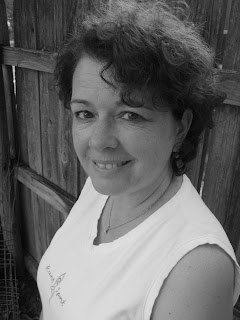When the economic crisis hit the news, I was escaping to 19th century France by reading The Count of Monte Cristo. Who wants to think about a coming depression when you need to find out who Madame Villefort will poison next? And the Count’s manipulation of the stock market is much easier to understand than why our dollar is up when banks are failing. But all good books end, and I've felt compelled ever since to write these thoughts.
I’ve heard all kinds of things blamed for our current woes, but I’ve not heard much about what I think is really at the heart of it. It’s not my idea, but one I’ve stolen from two people I love: my husband and Wendell Berry.
My husband is a home-improvement contractor, or as he calls himself: a handyman. He works long and hard and, like Job’s wife, though I’ve never said curse God and die, I’ve had many suggestions. Such as, “Why don’t you just paint? Or, just do wood replacement? Decks? That way you wouldn’t encounter so many unforeseen problems. You’d know the costs. You’d make more money, wouldn’t have to have every tool known to man cluttering our garage and your truck, and would get really great at ONE thing.” He just listened, said “Mmm”, and kept on doing what he was doing.
If he had answered, “I don’t want to because I’d get bored”, I would have accepted that. But unlike me, he isn’t into self-actualization. He’ll do the most monotonous tasks without complaining. But what I have learned from him, albeit slowly, is that he doesn’t want to specialize because he abhors that mentality. The plumber puts in his pipes without regard for the electrician, who does his thing without regard for the sheetrock guy, who has his way of doing things that make his job easier, more profitable.
What motivates my husband is taking care of the homeowner. Whatever they need. He doesn’t ask himself if it will be profitable or efficient or a job he would enjoy. He doesn’t work with profitability in mind, but rather with quality in mind. That’s why he’ll never “flip” a house. He can’t do it. He can’t slap on a coat of paint and walk away. The work has to be done right, to last. He won’t specialize.
Wendell Berry wrote in 1977 in The Unsettling of America:
The disease of the modern character is specialization. Looked at from the standpoint of the social system, the aim of specialization may seem desirable enough. The aim is to see that the responsibilities of government, law, medicine, engineering, agriculture, education, etc., are given into the hands of the most skilled, best prepared people. . . . The first, and best known, hazard of the specialist system is that it produces specialists - people who are elaborately and expensively trained to do one thing. We get into absurdity very quickly here. There are, for instance, educators who have nothing to teach, communicators who have nothing to say, medical doctors skilled at expensive cures for diseases that they have no skill, and no interest, in preventing. More common, and more damaging, are the inventors, manufacturers, and salesmen of devices who have no concern for the possible effects of those devices. Specialization is thus seen to be a way of institutionalizing, justifying, and paying highly for a calamitous disintegration and scattering-out of the various functions of character: workmanship, care, conscience, responsibility.
The entire process of buying a home has become specialized, creating a system in which a person can make a profit on one little part without being responsible for the whole. A broker can originate a loan and make his fee. His success depends solely on making the loan go through. The loan is then sold, sometimes over and over, with various players along the way getting a piece of the pie, but no one is tied to whether or not that original buyer pays the mortgage.
It’s axiomatic. When you have a stake in final outcomes, in the whole of something, you care more for the big picture. In the mortgage industry, where banks sold and kept their own mortgages, they’ve seen much fewer defaults.
Several years ago when my husband’s grandfather was in a coma, breathing by machine, we would wind our way through a gray maze to get to intensive care, anxious for a divine visitation from a doctor. A surgeon said the surgery went well, even as Pawpaw lay there in a coma. The kidney doctor said the medicine for the lungs was hurting the kidneys. The lung doctor was watching the lungs, not the kidneys. A heart doctor was happy about the heart. We asked, in vain, “Where is the doctor for Pawpaw, the man?”
The tunnel vision and shortsightedness that comes from specialization is made even worse by the fact that everyone is pressured to make decisions that bring profits and results TODAY. A “calamitous disintegration” indeed.
Subscribe to:
Post Comments (Atom)


4 comments:
What!? - writing about the economic crisis and not mentioning democrats or republicans? You mean the issues are deeper than that? As your husband said, "Mmmm."
so, you spent the evening writing this really smart post while I was watching the Country Music Awards on TV? But I get you about this specialization stuff... the Eagles should totally stick to Rock and Roll and leave country music to Brooks and Dunn. Write on.
Yes, yes, yes Mom! Strangely, I started reading the part about Dad and immediately thought of the exact Wendell Berry excerpt you used. I believe that this is a good justification for Humanities majors as well...we get to explore all the facets of life instead of spending the four years in just one discipline. I loved this, mom.
I hadn't applied it to education, but I heartily agree.
Post a Comment